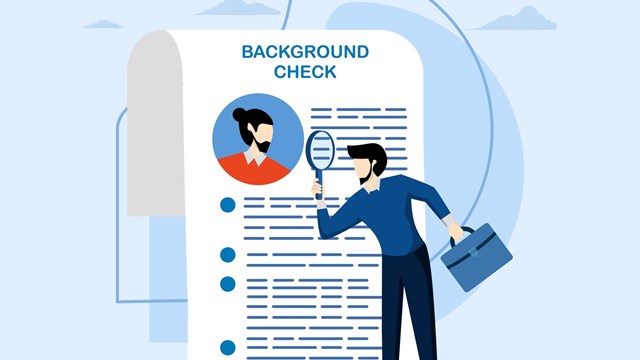
Despite the fact that most people would agree that discrimination is a bad thing, discrimination persists, which suggests either that existing laws against it are sometimes ignored, or that the legal definition of ‘discrimination’ isn’t always clear. Fortunately, when it comes to condos, co-ops and HOAs there are laws at the federal, state and local levels to guide boards in making decisions that will steer them clear of the ethical breach that discriminatory practices represent, as well as the legal penalties that can follow.
And those penalties can be high indeed. In New York City, a pair of legal decisions around the turn of the last century—specifically, the federal Broome v. Biondi et al and the New York State Biondi vs. Beekman Hill House Apartment Corporation—revolving around a finding of race-based discrimination against prospective co-op tenants resulted in board members learning that they could be held individually liable for decisions that violate the law. The case was significant enough that the decisions around it had reverberations that affect how discrimination law is discussed today.
A Bit on Biondi
In short, the Broome v. Biondi decision were the result of lawsuits brought against both the cooperative corporation and certain individual board members of Beekman Hill House at 425 East 51st Street in Manhattan in the late 1990s. Gregory and Shannon Broome, two young attorneys, were seeking to sublet an apartment, and found their ideal unit in Beekman Hill House. The process appeared to be going smoothly until the board found out that Mr. Broome was black. According to testimony, the tone of the board’s communications with the Broomes immediately cooled, and after a contentious meeting at which Mr. Broome was accused of being ‘angry, aggressive, difficult, pushy,’ the Broomes’ application was denied. The couple fought back, bringing suit against Beekman Hill House and the board members who voted to deny their sublet. The case went to trial, and a federal jury ultimately found in the Broomes’ favor, agreeing that the board members named in the suit had indeed discriminated against them in denying their sublet application. The Broomes were awarded $640,000, nearly two-thirds of which was to come from the pockets of the board members as punitive damages. Nicholas Biondi, the president of the co-op, then sued the co-op to recoup his losses, but a state court denied him even that, determining that board members can be held individually liable for discriminatory transgressions.
According to the New York Times’ May 14, 1997 account of the decision, “In returning its verdict on May 6, the jury found against the co-op as well as against the five directors who had voted to deny the sublet application. In granting punitive damages to the Broomes, the jury awarded $150,000 against the co-op, $125,000 against Mr. Biondi, $60,000 against...another board member, and $25,000 each” against three other board members. “The jury also awarded Mrs. Demou, the apartment owner, $107,000 in compensatory damages and $57,000 in punitive damages on her claim that the board had retaliated against her when she tried to stand up to it when it sought to deny the Broomes’ application.”
These decisions were a wake-up call to boards that had previously been unaware of—or insufficiently concerned about— the scrutiny they might find themselves under in regard to discriminatory practices. They’ve since had to tighten up interview practices and walk a fine line when vetting potential shareholders. And, while Biondi pertained specifically to discrimination on the basis of race, discrimination extends far and wide to areas including disability, gender, sexual preference, religion, and other factors. It’s imperative that boards stay abreast of the latest developments in regard to discrimination, lest they find themselves on the wrong side of both ethics and the law.
Biondi: Legacy
Boards unfamiliar with the Biondi decision can benefit from a closer reading, as ignorance of the case – and even more importantly, the social issues that underpinned it—can potentially affect both their reputations and their pocketbooks.
“The Biondi decision made boards realize that there was a great deal of personal risk involved in their admission decisions,” says Stuart M. Saft, a partner at the Manhattan office of law firm Holland & Knight LLP. “It also demonstrated that members could be found liable even if they took no part in a discriminatory action. On the other hand, it’s given attorneys a clear framework via which we can explain to boards that an act they may not feel is discriminatory may be construed as such when viewed from a different perspective. The downside of the decision is that it has kept very competent people who are in no danger of engaging in discrimination from serving on a board out of fear of being sued for something they did or did not do, or equally problematic, being required to prove a negative (i.e. being made to illustrate that a board did not discriminate when it rejected a buyer with weak financials who also happened to be a member of a protected class).”
The tricky lesson for boards is that they must be simultaneously aware of the various protected classes in play while actively avoiding making reference to them. “When I speak to boards about discrimination, I usually give them a list of the over 20 protected classes that exist in the federal, state and New York City discrimination laws,” says Andrew P. Brucker, a partner with the law firm of Montgomery McCracken Walker & Rhoads LLP, which has offices in New York, New Jersey, Pennsylvania and Delaware. “I remind them of what they cannot ask during an interview—which is a lot— and what they cannot say.”
In terms of what one cannot say, Ian J. Brandt, a partner with Wagner Berkow LLP in Manhattan, relates the following: “I have a case pending with the Westchester Commission on Human Rights. My client is a shareholder in a co-op, who had a really nice applicant, a married couple. They had a relative who they planned to have live with them indefinitely who happened to be disabled. When they disclosed this to the board of directors, the directors didn’t say anything about it then and there. But when the application was rejected, my client went to the board meeting, cornered a member and said ‘I’m really disappointed that these people got turned down. They were great applicants, financially qualified. And it’s a setback for me as I’m trying to sell my unit.’ And the president—to this day I believe that their intentions were good—specifically said — and we have it on tape—‘The other occupant has severe mental disorder, and I have a disabled brother; I know that my brother would not be good for this building. Not because I don’t love him, but because people here are sensitive to noise, and I know that my brother would make a lot of noise and wouldn’t be a good fit.’ [The board president] made the connection between someone’s disability and their ability to live in this building, which you cannot do.”
When Discrimination Strikes
As the conversation around protected classes changes and evolves, certain points of contention can emerge. One current example is certain owners’ and buyers’ claims of needing ‘emotional support’ animals in buildings and associations with no-pet policies, or policies limiting the type and size of pet an owner may keep.
“Emotional support animals should be distinguished from service animals, which are animals that have been specially trained to provide a service related to an individual’s disability,” notes Jeffrey S. Reich, a partner with Manhattan-based law firm Schwartz Sladkus Reich Greenberg Atlas LLP. “We have seen cooperative and condominium residents grow increasingly more emboldened in respect to claims involving the harboring of emotional support animals in buildings that otherwise have ‘no pet’ policies. City and state agencies have also become more aggressive in investigating claims of discrimination relating to denials of resident requests relating to emotional support pets.” While service animals are exhaustively trained at great expense and paired with their humans after a lengthy process, anyone can download and print out a ‘certificate’ claiming that their pet is an ‘emotional support’ animal. While legal pros are quick to note that the majority of emotional support animals may be legitimate, they also say that the label is not-infrequently abused by individuals who see it as a way to get or keep a pet, despite their building’s rules barring them.
So just how common are discrimination claims against boards? Stewart Wurtzel, an attorney and partner at Tane Waterman & Wurtzel, P.C. in New York City, says that they are still fairly common, despite New York having extensive protections in comparison with other jurisdictions. Part of the reason for that persistence may be simple ignorance of the law, rather than any sort of specific animus on the part of board members.
“Some questions that you cannot ask applicants seem counterintuitive, as they’re the type of things that people routinely ask each other in introductory social situations,” Wurtzel says. “Like, ‘What do you do for a living?’ ‘Are you married?’ ‘Have any kids?’ ‘In what year were you born?’ ‘Why do you have that limp? Are you okay?’ All of these seemingly mundane queries can cause a lot of legal trouble if asked in a co-op interview. And we also have to recognize that, while things have radically improved over the last half-century, there is still a lot of prejudice out there. And in most cases, discrimination is not overt; it’s more pretensional, meaning that people are not getting rejected because they’re a lawyer, or a woman, or black outright, but when you compare their rejected application to a purchaser who was approved, only to find that on paper, the rejected applicant looks better, the reason given for that rejection is more likely to be a case of pretensional discrimination.”
To avoid discrimination dust-ups, prudent boards will often implement a rigid system designed specifically to do so. “Boards have learned their collective lessons, and counsel will universally preach the law,” says Thomas D. Kearns, a partner with Olshan Frome Wolosky LLP, a law firm with offices in New York and New Jersey. “Systems are set up to minimize risk. For example, boards will extensively review financial information before learning a single additional thing about an applicant to avoid a claim that a decision based on finances was in fact discriminatory.”
Brucker agrees, and asserts the importance of consistency in a board’s decision-making. “It’s common for an applicant rejected from a co-op to immediately claim discrimination,” he says. “A lawyer or broker will allege this, and ask the board to reconsider the applicant. This is why I urge boards to be reasonable and consistent. The primary concerns of a board should be whether the applicant can afford the apartment and afford the maintenance thereof. Other concerns are much more subjective — i.e. whether they’ll be good neighbors, or whether they will act and work toward the benefit of the co-op. I always remind boards that, if and when a decision to reject is made, it must be very solid, and based upon real facts; the board is best served by acting under the assumption that every rejection will result in a discrimination claim.”
Penalty Box
With the specter of Biondi looming over board members while conducting interviews and other day-to-day business, associations are extremely cautious, and for good reason: the penalty for a misstep could prove debilitating for a cooperative, an individual board member, or both.
“Penalties for illegal discrimination can be severe, as punitive damages and legal fees may be rewarded,” explains Wurtzel. “These often amount to substantially more than the compensatory damages that are awarded as result of the discrimination. An individual board member who engages in illegal discrimination is not generally entitled to indemnification from the co-op. That is what Biondi determined.”
“Even with insurance, punitive damages and damages arising from intentional conduct are not insurable, leaving the building exposed to substantial damages,” Wurtzel continues. “That does not mean that a board needs to admit every applicant within a protected class into a building, whether they’re qualified or not. But a board needs to make sure that a reason for rejection has nothing to do with that protected class standing, and is entirely related to that applicant’s personal history. For instance, a board should not reject someone because they’re a commissioned salesperson; but it can reject them if their commission history is insufficient, or not likely to cover the expenses for which they would be responsible.”
And, when it comes to how boards can best stay out of trouble, Saft offers some extremely timely advice: “Call your lawyer before you reject anyone who might be a member of a protected class, regardless of the strength of your position. And do not discuss admissions using email, ever. In fact, never discuss anything important over email. Just assume that everyone is being hacked all of the time.”
Michael Odenthal is a staff writer and reporter for The Cooperator.









Comments
Leave a Comment